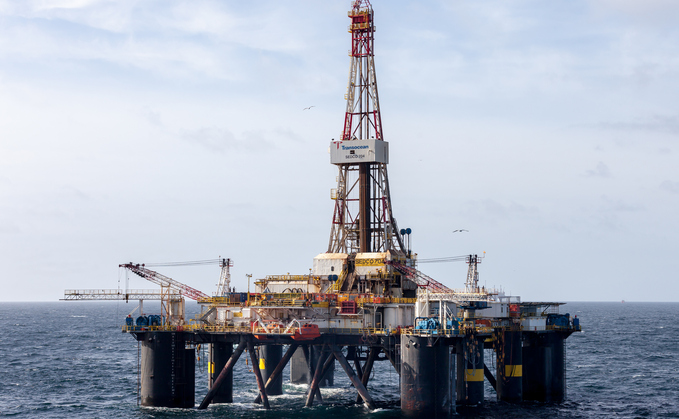
Credit: iStock
Carbon Tracker analysis finds global stock markets are still carrying three times more carbon reserves than can be burned for the world to stay on a 1.5C pathway
Global stock markets are sitting on vast stranded asset risks, as they hold investments in three times more coal, oil and gas reserves than can be burned if the world is to stand a chance of limiting global warming to 1.5C.
That is the headline conclusion of a new analysis from influential think tank Carbon Tracker, which asserts that the greenhouse gas emissions embedded in current estimated reserves and discovered resources of fossil fuels has grown by almost 40 per cent in the past decade.
The situation leaves the global economy exposed to huge stranded asset risk, as 90 per cent of all known fossil fuel reserves held by listed companies must stay in the ground if the world is to stand even a 66 per cent change of limiting global average temperature rise to 1.5C by 2100, it argues.
Indeed, if just 40 per cent of these known fossil fuel reserves are burned, it would push the world beyond the upper 2C warming goal set out in the Paris Agreement, resulting in potentially catastrophic global climate impacts, according to the analysis.
Stock markets, banks, insurers, lawyers, and financial services providers are therefore continuing to profit from activities that are at odds with their countries' climate commitments, and which are putting investors' money at risk, Carbon Tracker argues.
As such the think tank has today reiterated its long standing calls for the world's largest investors - including asset managers responsible for $130tr of investments committed to achieving net zero by 2050 under the Net Zero Asset Managers initiative that launched last year - to use their influence to guide firms towards climate safe-business strategies that drastically curb demand for fossil fuels and curb efforts to identify and open up new fossil fuel reserves.
Co-author of the report Thom Allen, an oil and gas analyst at Carbon Tracker, said governments also had a major role to play in tackling stranded asset risk from fossil fuels on stock exchanges.
"If governments are really serious about climate change they must ensure that the activities of stock exchanges and the financial centres around them are consistent with national climate goals and net zero commitments or we will lose any chance of meeting the Paris target," he said. "This is especially important now as fossil fuel prices and related company stocks soar."
Both the world's top climate scientists which make up the UN's Intergovernmental Panel on Climate Change (IPCC) and the International Energy Agency (IEA) have made clear there must be no new coal, oil, and gas fields opened up if the chances of limiting global warming to 1.5C are to be kept alive.
Moreover, UN Secretary General Antonio Guterres last week described new funding for fossil fuel exploration as "delusional". "Nothing could be more clear or present than the danger of fossil fuel expansion," he said. "Even in the short term, fossil fuels don't make political or economic sense."
Figures revealed in Carbon Tracker's latest report today underscore the urgency of driving down fossil fuel development and demand over the next decade in stark terms.
As it stands, the world can only emit another 320 billion tonnes more greenhouse gas emissions to have a 66 per cent change of limiting warming to 1.5C, yet at current rates of consumption that carbon budget is set to be exhausted by 2030, it stresses.
And the total embedded emissions of all known fossil fuel reserves is 10 times that level, at around 3,700 gigatonnes of CO2 equivalent, according to the think tank, demonstrating the huge scale of existing investments remain in coal, oil and gas that cannot be burned if the Paris Agreement goals are to be achieved.
The majority of these embedded emissions from fossil fuel reserves are controlled by state-owned or private firms, but the report estimates just over 1,000Gt is owned by publicly traded firms on global stock markets, which investors therefore hold considerable influence over.
The report estimates that the New York Stock Exchange is the financial centre with the highest amount of embedded emissions from freely tradable shares, boasting 160Gt of reserves, followed by stock exchanges in Moscow, Toronto, London, and Sydney.
The London Stock Exchange holds 47Gt of embedded emissions, which is 30 times more than that embedded within the UK's domestic fossil fuel reserves, and 10 times larger than the country's 15-year carbon budget for 2023-37, according to the think tank.
Mike Coffin, head of oil, gas, and mining at the think tank, said financial firms which continue to enable fossil fuel activities cannot be viewed as aligned with the Paris Agreement, and that they are also leaving themselves increasingly exposed to stranded asset risk as the net zero transition accelerates.
"Fossil fuel companies are reliant on equity and debt markets for the financing of capital-intensive projects, both to raise capital to finance new investments, but also to maintain existing production facilities and drill new wells," he said. "Financial centres facilitate, and profit from, both the primary equity raising and ongoing finance requirements for these companies, as well as secondary trading activities."
It is now more than 10 years since Carbon Tracker published its landmark 'Unburnable Carbon' report in 2011, which for the first time showed that there were more fossil fuel reserves around the world than it would be possible to extract and burn while keeping global climate goals within reach.
Yet in the decade since, as net zero targets have been adopted worldwide to the point where they now cover 90 per cent of global GDP, the stranded asset risk which the global economy faces has only continued to grow - as has the urgency for shifting towards greener investments. Fossil fuel firms maintain that a combination of carbon capture and storage (CCS) technologies and negative emissions solutions could allow them to continue to exploit new reserves without breaching the world's climate goals. But, as Carbon Tracker has repeatedly countered, such scenarios require implausibly heroic assumptions about the pace at which fledgling CCS and negative emissions sectors can scale up.
The simplest and safest message for governments and investors remains the same one Carbon Tracker has been pushing for over a decade: we need to keep it in the ground.











